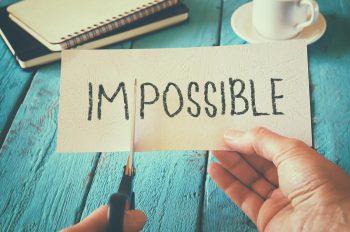Reflection. Yep, it’s the R word again. Now, don’t turn off, because I’m actually thinking we need a rebrand. Bear with me.
As an idea, reflection seems to cause a whole heap of negativity in people. But, when you think about it, isn’t it just a process of reviewing new information and applying it to your life? Here’s an idea then – how about R&A, instead? For reviewing and applying?
I’m considering this because I am doing some R&A for myself – I’m going through my BSAVA notes, for one, and I’m part of the RCVS pilot scheme for outcome-based CPD.
Both got me thinking, and I realised: I have been wanting to improve how I record my CPD via the PDR for a while, as I feel what I record doesn’t fully show a) what I’ve learned and b) what I thought about it.
Introduction day
Earlier this year, the RCVS hosted an introduction day for its new proposed CPD scheme, and it was really good – informative and a great chance to talk to others with lots of different viewpoints. It felt that whatever comes out of this, the college will get a range of views from across the industry.
My R&A from the pilot day was to consider questions about any CPD I attend:
- What have you learned?
- What will you do differently?
This can be done in easy bullet points – I’ll show you my efforts from a BSAVA lecture at the end.
If you want to go a bit further, you can consider expanding your thoughts:
- Are there headings you can use to make your notes easy to review?
- Ask: did it relate to your objectives/thoughts at the start of the session or course?
Planning ahead

There was some debate over the college’s proposed cycle of “Plan, do, record, reflect”, with some people having an issue over the planning stage.
We know we might head to congress and drop into a talk we hadn’t planned on attending, or an evening CPD comes up that sounds interesting at short notice.
We don’t need to get stuck on the planning – it can be as simple as “that sounds interesting” and going to an event.
On the other hand, it can be a longer term plan to learn new surgical techniques or undertake a post-graduation qualification. Both are equal in their planning – if you think you could learn something then do it.
Teaching students R&A, I’ve found you have to ensure it’s a positive experience. The process should only be a good one, so there needs to be awareness one is not becoming negative about one’s self during it. Therefore, the most basic part of this awareness is knowing when the process itself needs to stop. There was some great guidance from the RCVS on this – you stop when:
- specific needs are met – for that individual patient
- general needs are met – for your overall body of knowledge/skills
So when is your new learning enough? Probably when you are confident you can resolve the challenge. Yes, you could go and learn more, but resolve the issue you have first.
Here’s one I made earlier…
I promised I’d give you my version of R&A for some BSAVA lectures.
My list of questions and information is to be included on my PDR – in fact, as part of the pilot scheme, I’m going to suggest we have a document on the record where you can store your R&A prompts to copy and paste onto the comments section – this should make things a little easier.
For each lecture I make notes as I listen, so it would therefore also be nice to upload those onto the PDR and use it as a one-stop shop for notes.
Now I’ve read back on my notes I’ve considered:
- new information
- changes to current working practice
- future plans
My R&A notes on alternative pain therapies

Something close to my heart for myself and for LB, this was. It covered a number of therapies and the results of research into their efficacy.
New info
- Acupuncture appears most effective (studies on dogs).
- Laser therapy effective, but few negative studies, so issue with data?
- TENS machines effective but only short term use? Maybe get owners to use at home.
Changes
- Consider TENS machine use in practice and for clients.
Future plans
- More info on laser and TENS machines, nurse-led clinics for pain?
Yes, there was a huge amount more information in this lecture, and I’m sure someone else’s review of the lecture would be different. But that’s the point of reflection – it’s individual to the person and the practice, and doesn’t have to be laborious.
Little time, big rewards
Writing this blog and reviewing my notes has taken me less than an hour. I’ll spend a little more time editing this as it’s for publication, but if it wasn’t I’d leave it here and head to the PDR and copy and paste my notes in. It’s that simple.
Don’t let the R word put you off. Call it what you like, but do it.

Leave a Reply